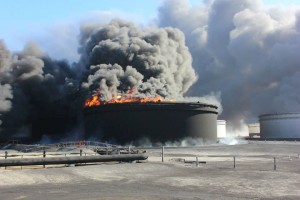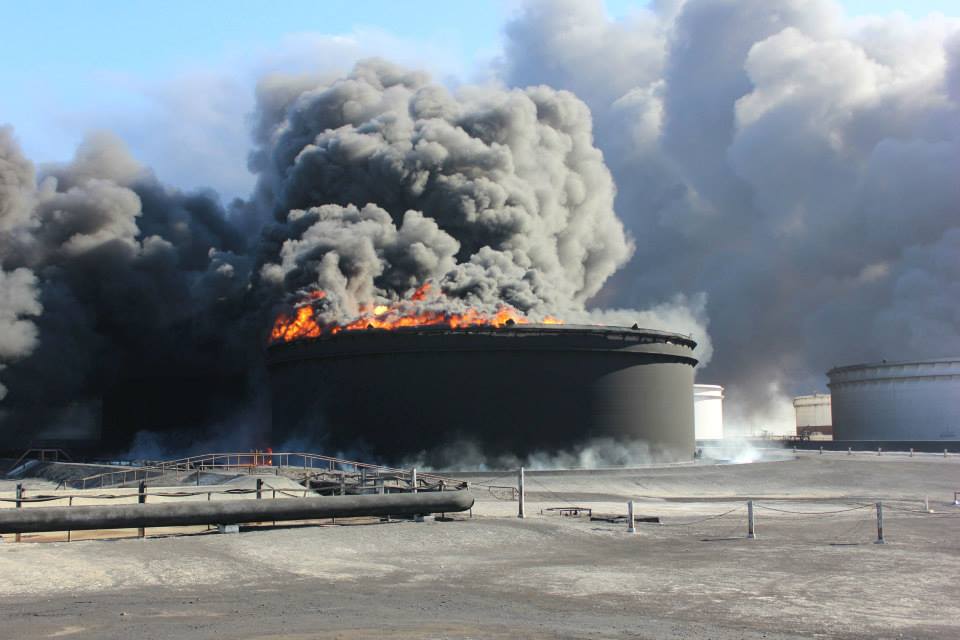By Libya Herald reporter.

Malta, 1 February 2015:
The official report on the fire at the Sidra oil storage tankers, drawn up by . . .[restrict]the Sirte Oil Company Fire Department, confirms that the fire had caused huge infrastructural and material damage.
A summary of the report released by the NOC, says that the December fires caused by warring militias, had led to the loss of a large amount of crude oil estimated at about 1.48 million barrels of oil.
It had also led to the complete destruction of 3 crude oil storage tanks. There was also extensive damage to the loading and unloading systems.
The report also says that there was damage to the electric connections, electrical control rooms, roads, paths, the fire extinguishing systems and the electricity network. The main firefighting systems were also damaged, the report revealed.
Sidra is the Libya’s largest oil export terminal, able to handle up to 300,000 b/d of oil exports a day.
Last December, NOC executive Mohammed Naji Ahfif had estimated that 1.63 million barrels of oil had been lost in the blazing tanks, which he had at the time estimated could lead to a loss to the Libyan people of almost US$ 100 million in oil revenues.
There are 19 storage tanks at Sidra with a total capacity of 6.2 million barrels of oil.
The state-run National Oil Corporation (NOC) has said that oil production in Libya was slashed in half, down from 800,000 b/d, once clashes erupted in the Oil Crescent on 13 December.
At the end of December, the House of Representatives (HoR), brokered a $6-million deal with a US company to extinguish the fires.
Sidra oil port is fed by fields run by Waha Oil Company, a joint-venture between the NOC and the US companies, Hess, Marathon and ConocoPhillips.
The Es Sidra oil storage tankers and oil terminal were first attacked in a surprise move by the Libya Dawn forces on 13 December in an operation called Shurooq (sunrise).
The attempt by the forces in control of Tripoli to take control of Libya’s main oil-producing area was rebuffed by Karama jet fighters and by Ibrahim Judran’s Petroleum Facilities Guards (PFG).
In the second attack on Sidra on 25 December, the oil storage tanks were set alight . Six tanks caught fire and the fire grew so big that Libya asked for international interventionto help put it out
The fire was successfully extinguished by Libyan firefighters, and without any international help, nine days after it had started.
About 70 volunteer firefighters and employees from local oil companies worked together at great risk to put out the fire while the Libyan National Army (LNA) battled Libya Dawn forces nearby. [/restrict]










